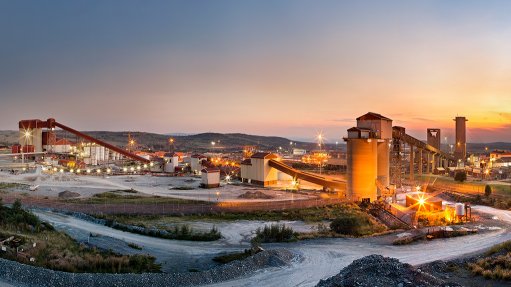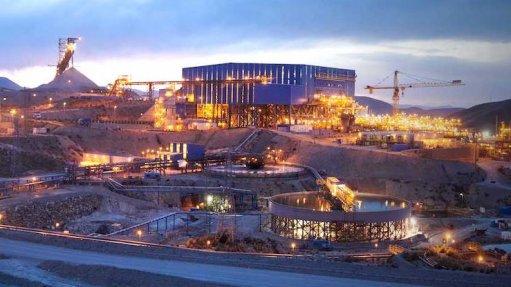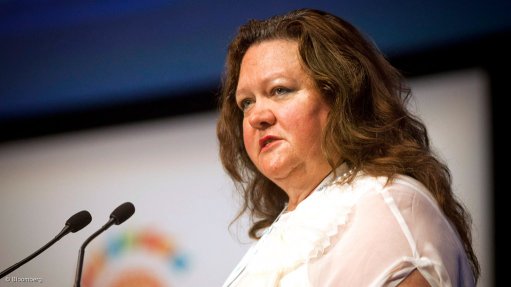Climate risk widely acknowledged, but rarely incorporated into strategy
The Centre for Environmental Rights (CER) says that although the majority of South African corporate companies recognise climate change as an already occurring and imminently worsening risk, they are slow to mitigate and manage these risks, at least according to publicly accessible information.
“Companies ought to report on emission reductions, while banks should have a strategy in place to reduce their credit risk exposure to risky carbon-intensive industries,” notes CER corporate accountability legal researcher Daiyaan Halim.
The environmental rights organisation on Monday launched the fifth assessment in its Full Disclosure series, titled ‘Full Disclosure 5: The Truth About South African Banks’ and Companies’ Ability to Identify and Address Climate Risks’.
The report considered these stakeholders’ disclosure and engagement with climate risks, raising critical questions about how major South African corporates are preparing for a low-carbon economy.
Using the Financial Stability Board’s Task Force on Climate-related Financial Disclosures (TCFD) as a benchmark, the CER assessed the climate-related disclosures of 15 JSE-listed companies according to the extent to which they disclose information and the quality of those disclosures.
The CER has launched a Full Disclosure 5 website, which will continuously be updated as more companies adopt TCFD reporting and disclose climate-related business decisions and developments.
The website will also be updated with commitments by companies that want to engage with the CER on full disclosures.
The 15 companies that have been assessed include the ten largest emitters of greenhouse gases (GHG) in South Africa – African Rainbow Minerals (ARM), ArcelorMittal South Africa (AMSA), Anglo American South Africa, Eskom, Exxaro Resources, Gold Fields, PPC, Sappi, Sasol and South32 – and five major banks – Absa, First Rand Bank, Standard Bank, Investec and Nedbank.
While ten of the 15 companies and banks assessed had identified climate change as posing a material business risk, only three – ARM, Anglo and South32 – had set out the potential short-, medium- and long-term impacts to their business, strategy and financial planning.
Only South32 and Anglo shared the scenarios that they used to inform their strategies, while eight companies indicated plans to reduce their emissions.
AMSA, Eskom, PPC, Sappi, Absa, Investec and Standard Bank were yet to publish emissions reductions targets in their operations or financing portfolios.
Only Nedbank disclosed its concentrations of credit exposure to carbon-related assets, as well as had a partial policy in place on funding coal mining and coal-fired power generation projects.
Standard Bank also had a partial policy in place in this regard.
No banks had officially adopted the TCFD reporting yet.
Halim suggests that banks and companies should develop strategies based on scenario analysis that considers a 2 ˚C or lower rise in global temperatures.
Only scenario analysis could inform the metric and targets that a company should use to assess and manage its climate-related risks and opportunities, he says.
He adds that corporates and financial institutions face physical and transitional risks from climate change that can affect their bottom line.
“Even worse, GHG emitters place our health, livelihoods, food security, water supply, human security and economic growth at risk.”
CER corporate accountability head Leanne Govindsamy says that, now more than ever, companies are ethically obliged to disclose climate-related risks and opportunities, as well as set out tangible mitigation strategies to protect people and the environment from further harm and to avoid negative impacts for their own businesses, employees and investors.
“The ability of banks and companies to respond to climate risk and adapt to a low-carbon economy is crucial to manage the economic, environmental and human rights risk posed by climate change.
These risks, and companies’ plans to respond to that risk, must be fully disclosed so that investors, communities, civil society and the media can have robust engagements with and about corporations that do not display a willingness to reduce emissions and manage risks associated with the continued reliance on coal, in particular,” she said.
Some of the manifestations of climate change in South Africa, which are already becoming more prevalent, include long periods of drought. Global effects include rising sea levels, extreme weather events, floods and drought.
The typical response from countries has been to increase government regulation – for example, the South African government is due to gazette a Climate Change Bill soon, adopt new cleaner technologies and for financiers and insurance companies to withdraw from carbon-intensive assets.
Environmental organisation GroundWork director Bobby Peek notes that South Africa has a “corporate-led” democracy and not a people-led democracy, with government allowing corporates to get away with only reporting aggregate and “blurry” information.
Consultancy Kigoda MD and political analyst Mike Davies says the TCFD had been adopted by 900 public and private organisations globally in mid-2019, adding that pressure from regulation and institutional investors for more transparent and thorough climate-related reporting will continue to increase.
He points out that the only companies to have officially adopted TCFD in South Africa are Investec, Gold Fields and Sasol.
Davies suggests that more stakeholders should pile on the pressure for these disclosures and strategies. The JSE, in particular, should demand that companies report on climate change-related details.
Climate change organisation 350.org South African team leader Glen Tyler highlights that $11-trillion worth of divestment had happened globally this year, mostly owing to investors moving away from fossil fuel projects and assets.
For example, global investor Blackrock had lost $90-billion over the last ten years owing to its investments in coal or carbon-intensive assets – by ignoring the serious financial risk of investing in fossil fuel companies, says Tyler.
He notes that there has been a marked increase in investor and institutional awareness about climate change risk in the last few years.
He states that corporates should rather see these disclosures and strategies as an opportunity to showcase good work on addressing climate change, which can provide a competitive advantage, rather than considering it a burdensome obligation.
Comments
Press Office
Announcements
What's On
Subscribe to improve your user experience...
Option 1 (equivalent of R125 a month):
Receive a weekly copy of Creamer Media's Engineering News & Mining Weekly magazine
(print copy for those in South Africa and e-magazine for those outside of South Africa)
Receive daily email newsletters
Access to full search results
Access archive of magazine back copies
Access to Projects in Progress
Access to ONE Research Report of your choice in PDF format
Option 2 (equivalent of R375 a month):
All benefits from Option 1
PLUS
Access to Creamer Media's Research Channel Africa for ALL Research Reports, in PDF format, on various industrial and mining sectors
including Electricity; Water; Energy Transition; Hydrogen; Roads, Rail and Ports; Coal; Gold; Platinum; Battery Metals; etc.
Already a subscriber?
Forgotten your password?
Receive weekly copy of Creamer Media's Engineering News & Mining Weekly magazine (print copy for those in South Africa and e-magazine for those outside of South Africa)
➕
Recieve daily email newsletters
➕
Access to full search results
➕
Access archive of magazine back copies
➕
Access to Projects in Progress
➕
Access to ONE Research Report of your choice in PDF format
RESEARCH CHANNEL AFRICA
R4500 (equivalent of R375 a month)
SUBSCRIBEAll benefits from Option 1
➕
Access to Creamer Media's Research Channel Africa for ALL Research Reports on various industrial and mining sectors, in PDF format, including on:
Electricity
➕
Water
➕
Energy Transition
➕
Hydrogen
➕
Roads, Rail and Ports
➕
Coal
➕
Gold
➕
Platinum
➕
Battery Metals
➕
etc.
Receive all benefits from Option 1 or Option 2 delivered to numerous people at your company
➕
Multiple User names and Passwords for simultaneous log-ins
➕
Intranet integration access to all in your organisation

















